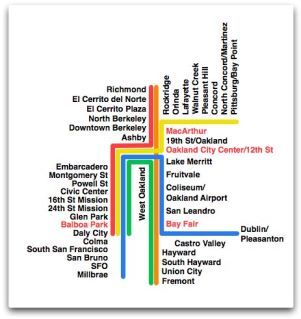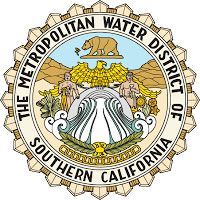Why are costly BART perks ‘little-known’? Media
by Chris Reed | August 3, 2013 6:15 am
 The Bay Area Rapid Transit System is central to the lives of hundreds of thousands of people and has been for decades. That’s why so many are concerned about the chance that the BART strike[1] resumes Monday.
The Bay Area Rapid Transit System is central to the lives of hundreds of thousands of people and has been for decades. That’s why so many are concerned about the chance that the BART strike[1] resumes Monday.
So all you can do is groan when Dennis Cuff of the Contra-Costa Times reports[2] on an insanely generous and pointless BART employee perk and calls it “little-known.” Why is it little-known? Because there is such consistently horrible coverage of how government bodies work.
“In a little-known perk at a transit system struggling to control the cost of benefits, BART gives its employees and their families free travel passes on its system — even after they retire.
“Although other Bay Area transit agencies offer their own free-ride programs, BART’s is among the most generous. It provides the same lifetime travel benefit to board members and their families, the only one of seven surveyed Bay Area transit operators to do so.
“The cost? All together, BART forgoes more than $2.1 million a year for the free rides — $741,000 of it for families.
“At a time when labor-management strife may lead to a second strike this summer, some critics say the extensive free travel policy is part of a tradition of overly generous benefits at BART.
“‘It sends a wrong signal that in a time when fares continue to go up there are people who have never worked for BART who ride for free,’ said Fred Wright Lopez, a Lafayette attorney and unsuccessful BART candidate last fall. ‘It’s an insult to BART’s riders.’“
Bosses benefit from lavish treatment of rank-and-file
 This cavalier giveaway reflects another central truth about BART, many big transit agencies and scores of water districts around California — especially the gigantic Metropolitan Water District of Southern California. The bosses don’t care if the rank-and-file get absurd salaries and benefits — because they’re getting even more absurd salaries and the same or better benefits. Who looks out for taxpayers inside BART? Nobody.
This cavalier giveaway reflects another central truth about BART, many big transit agencies and scores of water districts around California — especially the gigantic Metropolitan Water District of Southern California. The bosses don’t care if the rank-and-file get absurd salaries and benefits — because they’re getting even more absurd salaries and the same or better benefits. Who looks out for taxpayers inside BART? Nobody.
Which brings us back to how fundamentally horrible coverage of government is in California. I’ve lived here since 1990 and been a voracious consumer of newspapers the whole time. I have read thousands and thousands of stories about budget decisions at water agencies and other special districts, literally millions and millions of words.
Yet far less than 1 percent of these stories noted that the upper management has a substantial personal windfall to expect if it goes along with raises for rank-and-file workers. In most of these special districts, the board of directors is completely dependent on the staff for information and institutional history.
Instead of a sharp MBA type diagnosing this fundamental disincentive to control spending and district leaders adopting obvious reforms, we have a Senior Staff Analyst III testifying that automatic step raises on top of regular raises are the norm, and always have been, and the special district’s general manager nodding in agreement.
Fix is in from the top-down
There’s no need for a public employee union fix. The fix is in from the top-down.
Isn’t this important? Of course. But how often have you seen this explained? Just about never.
Thanks, state press corps. Thanks so very much.
- BART strike: http://www.mercurynews.com/bart/ci_23784259/bart-strike-talks-resume-friday-deadline-looming
- reports: http://www.mercurynews.com/breaking-news/ci_23778144/barts-free-ride-program-among-bay-areas-most?source=rss
Source URL: https://calwatchdog.com/2013/08/03/media-why-costly-bart-policies-little-known/